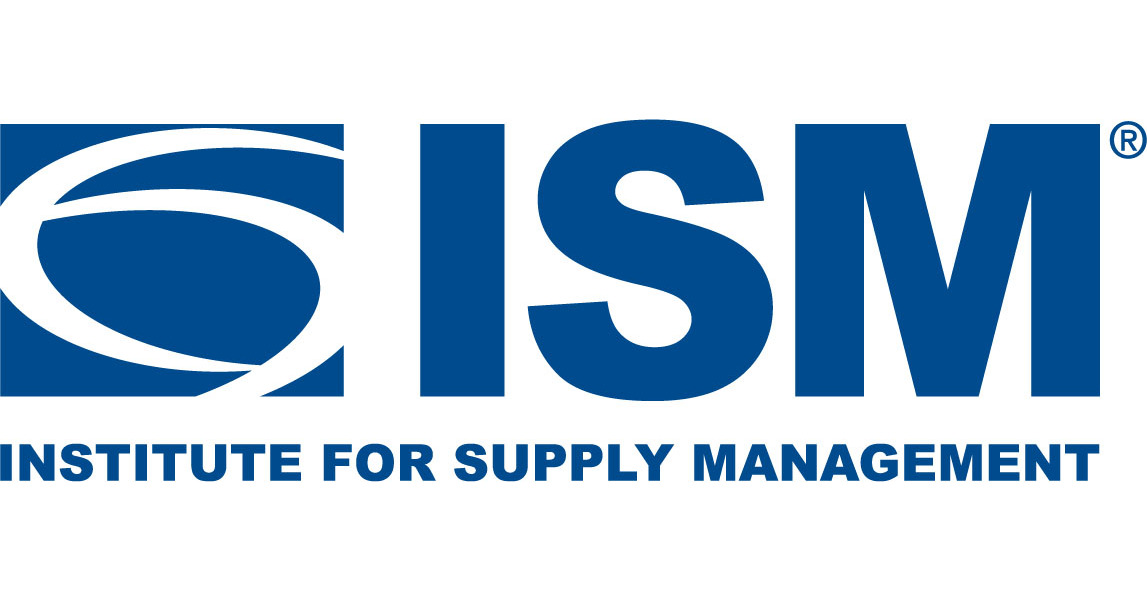Bussiness
Top Tax Write-Offs for Small Businesses and Self-Employed Workers in 2024
Affiliate links for the products on this page are from partners that compensate us (see our advertiser disclosure with our list of partners for more details). However, our opinions are our own. See how we rate tax products to write unbiased product reviews.
- A tax write-off is a tax deduction that helps lower your federal income tax.
- Self-employed workers and businesses can write off most ordinary and necessary expenses.
- Deductions for depreciation can be difficult to calculate, so consider hiring a tax professional
Tax write-offs, or tax deductions, are a boon for many small businesses and independent contractors.
While you typically need cash upfront to buy equipment and pay staff, among other things, the ability to “write off” those expenses and many others on your federal tax return reduces the amount of income tax you owe. Often, a smaller tax bill means more money to invest back in your business.
Introduction to tax write-offs
What are tax write-offs?
Business tax write-offs are expenses you can deduct from your business income. They lower your net profit and ultimately how much of your earnings get taxed, reducing your tax liability.
The Internal Revenue Service uses personal tax deductions to encourage certain behaviors from individuals, such as saving for retirement or donating to charity. For business owners and self-employed individuals, who pay taxes on profits rather than gross income, write-offs can encourage continued business investment and growth.
Importance of maximizing deductions
For self-employed workers and entrepreneurs, deductions help offset the cost of doing business by sheltering some income from taxation, and are just part of the calculation (profits = revenue – operating expenses and losses).
“For most small business owners, they are taxed on the net profit of the business. It’s crucial to track and report business expenses as they are deducted from the business revenue to determine the net profit,” says Greg Hudgins, a CPA in Florida and New York. “A smaller net profit means a smaller tax liability.”
Almost anything that’s used to create a product, offer a service, or run a company, including marketing expenses, insurance premiums, employee salaries, and the cost of office supplies, could be a business deduction.
Common myths about tax write-offs
Many people think tax write-offs are a total freebie for the self-employed.
“Especially with small businesses, a lot will say the minute you open an LLC, then you can deduct your life basically and just run it through your business,” says Caitlynn Eldridge, a CPA in Omaha, Nebraska. “But what you’re doing has to have a business intent.”
A business owner can hire their children, for instance, and write off their pay, but only if the children perform reasonable and age-appropriate duties for the company. “That’s a really popular one,” she says.
- Good for those with a complex tax situation that may need help navigating deductions and forms
- Offers step-by-step guidance
- Ability to upgrade for instant access to an expert
- No brick-and-mortar locations to meet with a tax pro
Product Details
- Tell TurboTax about your life and it will guide you step by step. Jumpstart your taxes with last year’s info.
- Snap a photo of your W-2 or 1099-NEC and TurboTax will put your info in the right places.
- CompleteCheck™ scans your return so you can be confident it’s 100% accurate.
- You won’t pay for TurboTax until it’s time to file and you’re fully satisfied.
- TurboTax is committed to getting you your maximum refund, guaranteed.
Key tax write-offs for small businesses
Home Office Deduction
A small business owner who “regularly and exclusively” uses part of their home for work may be eligible for a home office deduction.
The deduction allows you to write off the portion of living expenses that are attributable to the space used for work or inventory storage. Expenses can include things like your mortgage payment or rent and utilities.
Keeping track and tallying up all of those costs can be burdensome, so the IRS offers an alternative calculation: Multiply the square footage of your home used for business by $5. The maximum area you can claim using the so-called simplified method is 300 sq. ft., which caps the value of the deduction at $1,500.
Vehicle expenses
Car ownership isn’t cheap, but those who use their car for business can get a tax write-off for certain expenses, including insurance premiums, repairs, registration fees, and gas.
For a simpler calculation that doesn’t require tallying up individual costs, you can multiply the number of business miles driven during the tax year by the standard mileage rate of 67 cents.
If it’s a personal car you sometimes use for business, you’ll need to carefully track mileage and calculate the percentage that’s attributable to business operations, then multiply that figure by your total expenses to get the deduction. You may also be able to include amounts for depreciation.
Business travel expenses
Travel may be a necessary part of operating your business, whether you’re meeting with potential clients, going to a conference, or offering a service outside your immediate area.
In cases where your travel is a business trip — not a personal trip where you happen to fit in a client meeting — “then really that whole trip becomes deductible,” Eldridge says, from the flight to the hotel to the rental car. “The intention has to be business first.”
Meals and entertainment
Entertainment generally isn’t deductible as a business expense, even if you’re on an otherwise fully deductible business trip. For example, buying tickets for clients to a baseball game wouldn’t be a write-off.
However, as long as they are not considered lavish or extravagant, up to 50% of the cost of business meals, including taxes and tips, can be deducted. So treating your clients to nonalcoholic food and beverages at the baseball game could be a partial write-off.
Depreciation of property
Small businesses that purchase assets such as equipment, furniture, buildings, and machinery can recover some of the costs by deducting depreciation — or the decrease in the property’s value — on their tax return.
“Some assets, such as equipment or vehicles, cannot be expensed, or deducted, right away, and instead a percentage of the cost must be deducted over time. There are complex rules regarding depreciation, so it’s best to work with a tax pro to explain in detail,” Hudgins says.
Tax write-offs for self-employed individuals
Health insurance premiums
You’re considered self-employed if you run a business with no employees but yourself or your spouse. When you file taxes, you use the sole proprietor, partnership, or single-member LLC business structure.
While self-employment comes with many potential benefits, employer-provided health insurance isn’t one of them. The average cost of a health insurance marketplace plan for a self-employed worker, such as a consultant or independent contractor, is $477 a month.
As long as you report profit from your business for the year, you’re eligible to deduct up to 100% of the cost of your health insurance premiums. You can follow the instructions on Form 7206 to calculate your deduction or consult a tax professional.
Retirement contributions
Self-employed workers can save for retirement in accounts similar to those used by employees of larger companies.
“401(k) plans are available even to single-owner businesses without payroll and can offer big tax deductions while also saving money for retirement,” Hudgins says.
A self-employed worker can set up a SEP IRA or Solo 401(k) and make tax-deductible contributions based on a percentage of their earned income, up to $69,000 in 2024.
Determining the tax deduction requires some math; the IRS provides a worksheet online.
Self-employment tax
Traditional employees and their employers pay taxes from every paycheck toward Social Security and Medicare. Self-employed workers with annual net earnings of $400 or more have to pay these taxes too.
Generally, 92.35% of self-employed net earnings are subject to self-employment tax at a rate of 15.3%. Those taxes should be estimated throughout the year and paid quarterly. But one-half of the taxes paid can be deducted on your annual tax return, lowering your adjusted gross income, or AGI.
Education and training
The cost of continuing education, such as courses or training programs, may be tax-deductible for self-employed workers.
The course or program must be taken to maintain or improve skills or be required to keep a professional license. Allowable expenses include tuition, books, equipment, and transportation.
Additional business expense write-offs
Office supplies and equipment
Just about any supplies, materials, and equipment you purchase or lease for your business are tax-deductible.
They do not need to be absolutely essential purchases, but they do need to be “helpful and appropriate” and “common and accepted” for your trade or industry. Examples include:
- Computers
- Printers
- Paper and pens
- Software or app subscriptions
- Domain registration
- Office furniture
- Employee uniforms
For 2024, the maximum deduction is $1.22 million, though that may be limited if more than $3.05 million worth of property is placed in service.
Rent and utilities
If you rent out traditional office space to run your business, you may be eligible to fully write off the cost of rent and utilities. This includes full offices and coworking space leases.
Advertising and marketing
If you paid for any type of marketing or advertising to promote your company, product, or service, the expenses could be tax-deductible. Examples include the costs of creating and distributing digital ads, business cards, billboards, and paid social media posts.
Professional services
Incidentally, the fees you pay an accountant to manage your books or prepare your taxes are tax-deductible. The same goes for fees you pay a consultant or a lawyer, though legal fees related to the acquisition of business assets are not a write-off.
Lesser-known tax write-offs
Business insurance
There are a variety of business insurance policies that protect companies and the people who run them. In many states, having business insurance of some kind is required.
Generally, business owners can deduct premiums paid for the following types of insurance:
- Property insurance for an office or warehouse
- Liability insurance
- Group hospitalization or medical insurance for employees
- Overhead insurance
- Auto insurance for vehicles used for business
- Life insurance for employees
- Business interruption insurance
- Credit insurance
- Contributions to a state unemployment insurance fund
- Malpractice insurance
- Workers’ compensation insurance
Bad debts
If you included amounts in your business income that cannot be collected, they may be deductible as business bad debts. This can happen if you use the accrual method of accounting and you loan money to vendors or suppliers who do not repay you, or if you allow customers to make purchases on credit and they fail to pay off their balance.
Startup costs
Getting a business up and running can be costly, but the $5,000 startup costs deduction can help. The expenses must be associated with creating or investigating a new business and incurred before the day the business becomes active.
Common write-offs include market analysis, initial employee training, advertising, and salaries for executives and professional consultants.
If you hit the $5,000 limit and have more eligible costs to deduct, you can spread them out, or amortize them, over the next 15 years.
How to maximize your deductions
The IRS may reject your business tax deductions if you don’t provide adequate documentation.
“It’s especially important for small businesses to keep the business completely separate from their personal expenses — do not mix personal and business activity in the same bank account or credit cards,” Hudgins says.
Hold on to receipts and invoices and collect credit card and account statements that show the date and size of your expenses. These will help you complete your tax return and may need to be attached and submitted with it.
“When in doubt over the deductibility of an expense or for more ways to lower your tax bill,” Hudgins says, “consult a tax pro.”
FAQs on tax write-offs for small businesses and the self-employed
The most common tax write-offs for small businesses include office rent and utilities, supplies and equipment, advertising and marketing, and fees for professional services. Self-employed workers commonly deduct health insurance premiums and part of the self-employment tax.
You can only deduct your home office if you also work outside the home if your home is your principal place of business. If your working hours are split between your home and another location, you may still be eligible.
To calculate your vehicle expense deduction, it will depend partly on whether your car is split between personal and business use or used exclusively for business. In either case, you can track specific expenses — such as gas, repairs and maintenance, and registration fees — or simply multiply the miles driven for business by 67 cents, the standard mileage rate.
Yes, there are limits to the meals and entertainment deduction. You can deduct 50% of the cost of business meals that you or an employee pay for and are attended by a potential customer, client, or consultant. You generally can’t deduct the cost of entertainment, even if meals are included.
To support your tax write-offs, you need documentation that shows the date and cost of an expense, such as store receipts, paid invoices, credit card statements, canceled checks, and account statements. If you’re writing off gas and other vehicle costs, you will need to keep a mileage and expense log.
Yes, you can write off education expenses related to your business. For example, the cost of tuition and books for courses or programs that are intended to improve your skills or maintain a professional license are generally tax-deductible.





_NicoElNino_Alamy.jpg?disable=upscale&width=1200&height=630&fit=crop)




